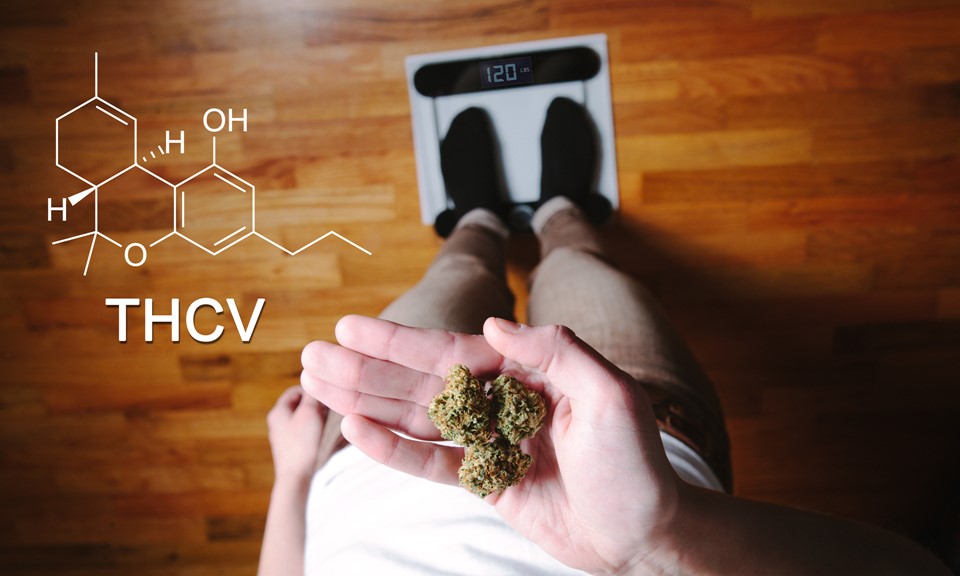Tetrahydrocannabivarin (THCV) is a cannabinoid substance found in cannabis and hemp plants. It's chemically similar to tetrahydrocannabinol (THC) but with some crucial differences. Here's whatever you require to know about THCV consisting of the risks, advantages, distinctions, and resemblances with other types of THC and more. What Is THCV? THCV is a less common cannabinoid discovered in some strains of marijuana, specifically African sativa.
 What Is THCV (Tetrahydrocannabivarin) And What Does It Do?
What Is THCV (Tetrahydrocannabivarin) And What Does It Do?
 THCV vs THC: What Are the Differences? Articles Analytical Cannabis
THCV vs THC: What Are the Differences? Articles Analytical Cannabis
 What is THCV and what are the benefits of this cannabinoid? Leafly
What is THCV and what are the benefits of this cannabinoid? Leafly
THCV has a 3-carbon side chain instead of THC's 5-carbon side chain. This distinction is subtle, however it has a noticeable influence on the impact profile. THCV is rather psychedelic however only about and about. What Does THCV Seem like? THCV has a strong energy-boosting component to it, which makes it particularly popular among trainees and athletes.
In the United States, THCV regulation is nuanced. THCV is not a Schedule I Drug, however marijuana extracts are making it rather ambiguous what the federal position is on THCV. The 2018 Farm Costs mentions that hemp plants and all derivatives of the plants are legal on a federal level, so many companies follow this law and still offer THCV to clients by only drawing out the substance from hemp plants.
If THCV is considered a THC analog, it might be controlled in the future by the same guidelines as THC under the Federal Analog Act. This act mentions that any compound that shares a similar molecular profile as a recognized forbidden compound it's included in the exact same drug Schedule classification.
What Are the Effects of THCV? Proponents of THCV report that it produces an extreme burst of energy and makes them feel blissful without the mental cloudiness brought on by THC. The impacts are very mild compared to THC. The impacts are almost solely cognitive yet somehow have very little effect on headspace.
2. THCV & Appetite Some THCV users declare that it curbs their hunger. This is a common effect of other focus-enhancing substances. It's as though THCV removes the diversion of other physical procedures (like cravings) in order to preserve resources and attention to cognitive tasks rather. How Does THCV Work? Cannabinoids produce biological results in the body by engaging with endocannabinoid receptors.
CB1 receptors are situated in the nervous system and connect with neurotransmitters in the brain to produce mind-altering effects. Interaction with CB1 websites is what gives some cannabinoids like THC their psychoactivity. THCV is a bit difficult to comprehend because it's primarily Helpful site a CB1 villain, indicating it has http://sergioxbew662.almoheet-travel.com/what-is-delta-8-thc-and-thcv-and-how-do-they-compare-to the opposite impact as THC.
While researchers are still looking for to comprehend this procedure, it appears THCV is able to block the effects of CB1 in low doses and stimulate them in high doses. CB2 receptors are discovered primarily in the immune system. THCV is a partial agonist of CB2, but the results of this partial activity aren't widely known, and it apparently has no noticeable effect on THCV users' experience.
As mentioned in the previous section, THCV is a CB1 antagonist in low dosages which is the specific opposite effect of delta 8 and delta 9 THC. This could suggest that THCV neutralizes a few of the psychoactive impacts of THC. This result could describe why people who use THCV feel so clear-headed especially compared to the well-known "fogginess" caused by delta 9 THC.